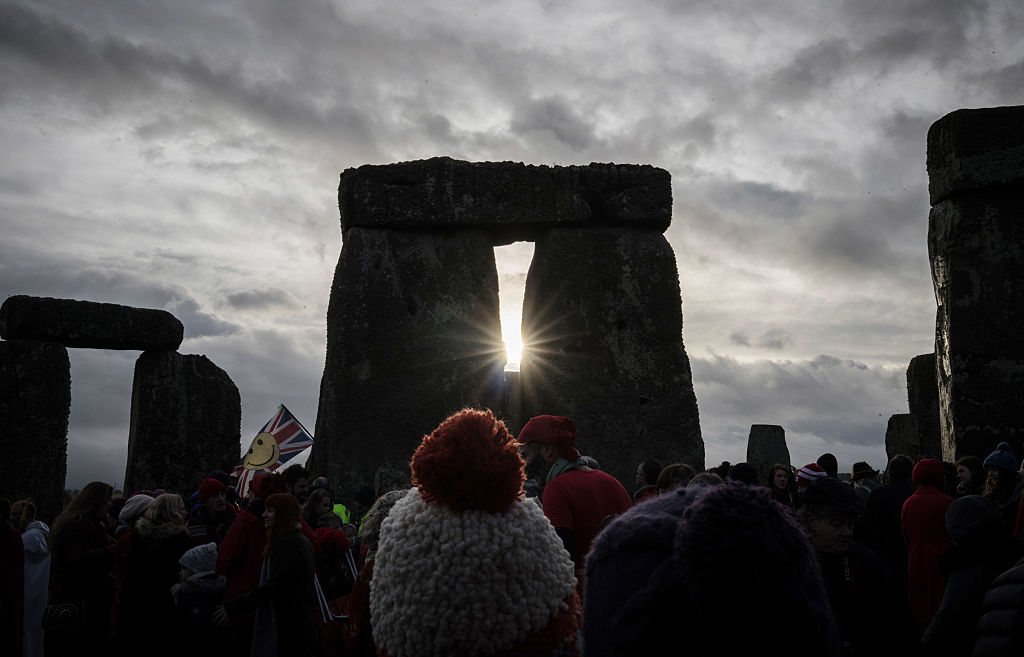All about the 2022 winter solstice


A free daily email with the biggest news stories of the day – and the best features from TheWeek.com
You are now subscribed
Your newsletter sign-up was successful
Dec. 21 is the 2022 winter solstice, marking the day with the least amount of daylight of the year for the northern hemisphere and the most amount of daylight for the southern hemisphere. The exact time of the solstice is 4:48 pm ET, which is the time of sunset in the northern hemisphere. The solstice occurs when the sun is directly above the Tropic of Capricorn, its most southern point of the year, CNN explains. The further north you live, the less daylight you will have.
The Earth experiences winter and summer solstices because the planet's orbit around the sun occurs at a tilt of approximately 23.5 degrees. In turn, the winter solstice occurs when the South Pole is tilted towards the sun, giving the southern hemisphere more daylight and the northern hemisphere less, Space.com explains. The opposite is true for the summer solstice.
The winter solstice is also the day for a number of traditions around the world. A number of places have midwinter festivals that take place on the solstice. Our ancestors also recognized the solstice with some fearing that the sun would disappear, reports The Wall Street Journal. Humans' understanding of the solstices was seen even thousands of years ago, like in the construction of Stonehenge, the structure of which aligns with both solstices.
The Week
Escape your echo chamber. Get the facts behind the news, plus analysis from multiple perspectives.

Sign up for The Week's Free Newsletters
From our morning news briefing to a weekly Good News Newsletter, get the best of The Week delivered directly to your inbox.
From our morning news briefing to a weekly Good News Newsletter, get the best of The Week delivered directly to your inbox.
Many cultures also believe the solstice to be spiritually significant with many holidays and celebrations occurring around the time, writes the Los Angeles Times. According to Ed Krupp, director of the Griffith Observatory in Los Angeles. "It gives people a signal about the cosmic order that surrounds them and seems to govern their lives, and also gives them an opportunity to anticipate what is coming next."
A free daily email with the biggest news stories of the day – and the best features from TheWeek.com
Devika Rao has worked as a staff writer at The Week since 2022, covering science, the environment, climate and business. She previously worked as a policy associate for a nonprofit organization advocating for environmental action from a business perspective.
-
 Why is the Trump administration talking about ‘Western civilization’?
Why is the Trump administration talking about ‘Western civilization’?Talking Points Rubio says Europe, US bonded by religion and ancestry
-
 Quentin Deranque: a student’s death energizes the French far right
Quentin Deranque: a student’s death energizes the French far rightIN THE SPOTLIGHT Reactions to the violent killing of an ultraconservative activist offer a glimpse at the culture wars roiling France ahead of next year’s elections
-
 Secured vs. unsecured loans: how do they differ and which is better?
Secured vs. unsecured loans: how do they differ and which is better?the explainer They are distinguished by the level of risk and the inclusion of collateral
-
 Nasa’s new dark matter map
Nasa’s new dark matter mapUnder the Radar High-resolution images may help scientists understand the ‘gravitational scaffolding into which everything else falls and is built into galaxies’
-
 Moon dust has earthly elements thanks to a magnetic bridge
Moon dust has earthly elements thanks to a magnetic bridgeUnder the radar The substances could help supply a lunar base
-
 How Mars influences Earth’s climate
How Mars influences Earth’s climateThe explainer A pull in the right direction
-
 The ‘eclipse of the century’ is coming in 2027
The ‘eclipse of the century’ is coming in 2027Under the radar It will last for over 6 minutes
-
 NASA discovered ‘resilient’ microbes in its cleanrooms
NASA discovered ‘resilient’ microbes in its cleanroomsUnder the radar The bacteria could contaminate space
-
 Artemis II: back to the Moon
Artemis II: back to the MoonThe Explainer Four astronauts will soon be blasting off into deep space – the first to do so in half a century
-
 The mysterious origin of a lemon-shaped exoplanet
The mysterious origin of a lemon-shaped exoplanetUnder the radar It may be made from a former star
-
 The 5 biggest astronomy stories of 2025
The 5 biggest astronomy stories of 2025In the spotlight From moons, to comets, to pop stars in orbit
